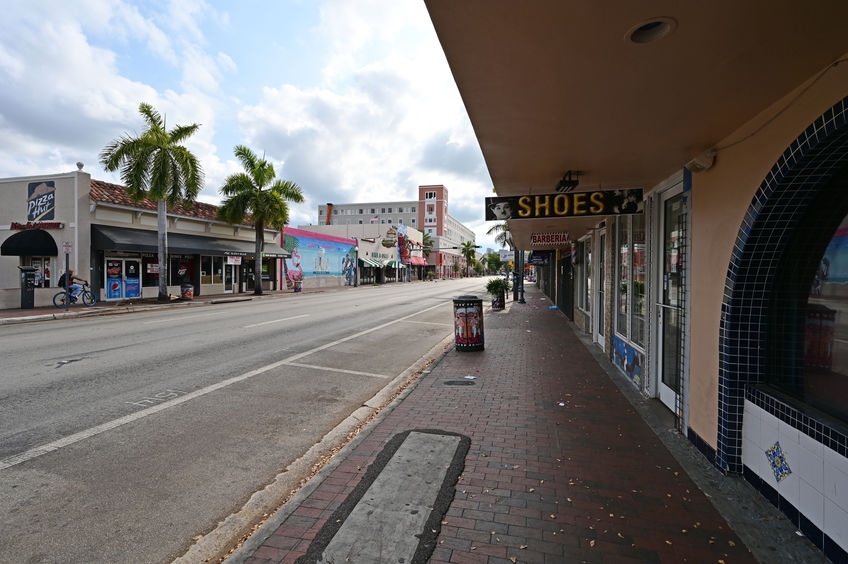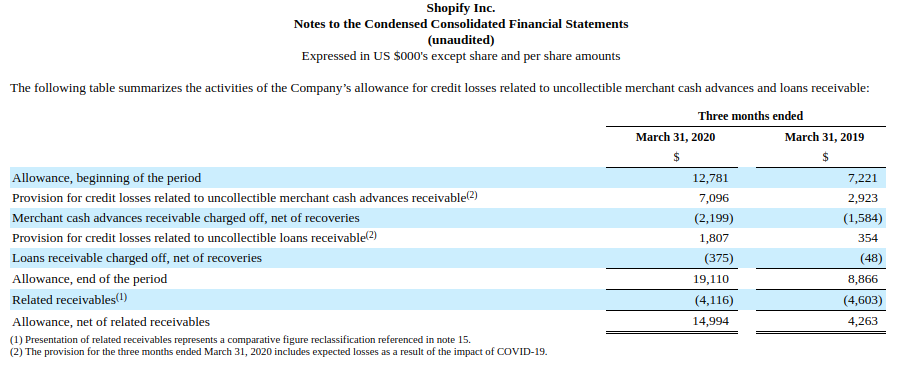Lendinero: How a broker shop is coping with covid-19
May 10, 2020 “Obviously, funding has really come to a standstill.”
“Obviously, funding has really come to a standstill.”
So said Lendinero’s CEO and Founder, Gil Zapata, over a call with deBanked last week. Speaking about how his company, a broker firm based in Doral, Florida, and the industry have been affected by the novel coronavirus, Zapata explained the steps that he and his team have taken to try keep their heads above water.
Following a period of expansion that saw new hires in both their Florida offices as well as their premises in Nicaragua, covid-19’s shutdown of the American economy served as a full stop to what Zapata referred to as “growth mode.” Lendinero has kept the wheels turning by helping business owners secure EIDL and PPP funding and in the process planted seeds he hopes will prove profitable in the future.
Accompanying these PPP loans is the revenue coming from Lendinero’s recent partnership with Benworth Capital. With Benworth being an SBA-authorized PPP lender, Lendinero has acted as an agent for the lending company, assisting them with their focus on businesses in Miami.
To speed up these processes, Zapata and his team created a one-stop portal for potential borrowers.
As well as this, in order to cut expenses, Lendinero had to make significant reductions in its staff, affecting workers in both his North and Central American offices.
“We kept the best of the best and that’s helped out. And we restructured a lot of payments.”
Having brought on new workers during their period of growth, it was many of these who were let go, as Zapata and his colleagues decided that it would be best to keep on the more experienced staff who would not need training and as much oversight.
“We came to the conclusion that whoever is going to stay with us, they know that obviously they need to do something and they need to generate results for us or contribute to us … I think that to be micromanaging people at this time is nonsense.”
With these steps taken, Zapata is confident that Lendinero can continue operating for about a year, but is hopeful that the MCA industry will bounce back over the next six months.
“Something has to happen. Maybe a vaccine comes or maybe it doesn’t come but state governments are probably going to take some sort of action and measures to reopen, and we’ve seen that already. I think in six months from now, it’s not going to be the same growth that we had, but those who are able to come back and open up their businesses will help revitalize the MCA market.”
Shopify Shows Strength in Q1 Results, Issues $162.4M in MCAs and Loans
May 6, 2020eCommerce platform Shopify, 2nd only to Amazon in retail eCommerce sales, issued $162.4M in merchant cash advances and business loans in Q1, up from $115.9M in the previous quarter. The statistic pushed them past the $1 billion threshold of funds cumulatively issued since inception.
The company’s provision and allowance for loan losses ticked up from significantly from the same period the prior year but Shopify at that time was originating 50% less volume.
The company reported a GAAP net loss of $31.4M on $470M in revenue. Shopify also has approximately $2.36B in cash and cash equivalents on its balance sheet.
The company reported an increase of monthly recurring revenue, thanks to an increase in the number of merchants joining the platform, strong app growth, and Shopify Plus fee revenue growth.
Shares of Shopify (NYSE: Shop) jumped by more than 5% after the announcement.
Knight Capital’s Intangibles As Reported Through Ready Capital’s Year-End Earnings
March 21, 2020Last year, Ready Capital Corporation (NYSE: RC) acquired small business funding provider Knight Capital.
RC’s year-end earnings provided some additional insight into the state of Knight Capital at the time it was acquired. This included balance sheet figures that recorded $48.4M in assets ($39.5M of which were purchased future receivables) and $31.8M in liabilities.
Among Knight’s intangible assets were a valuation of $880,000 assigned to the Knight Capital trade name, $1.2M assigned to the value of Knight’s broker network, and $3.8M assigned to the company’s internally developed software.
Goodwill of $11.2 million was recognized as the consideration paid exceeded the fair value of the net assets acquired.
View the full year-end financial statements by Ready Capital Corporation here
Maryland Merchant Cash Advance Prohibition Bill Put on Hold After State Abruptly Ended The Legislative Session
March 19, 2020 The State of Maryland decided to end their 2020 legislative session late last night rather than on the original April 6th deadline, due to COVID-19 concerns. Legislators managed to pass 650 bills in a “3-day sprint” but did not get to everything. Among the bills that did not even make it to the floor were SB913 and HB1478, the bills that called for an outright prohibition on a narrow definition of merchant cash advances.
The State of Maryland decided to end their 2020 legislative session late last night rather than on the original April 6th deadline, due to COVID-19 concerns. Legislators managed to pass 650 bills in a “3-day sprint” but did not get to everything. Among the bills that did not even make it to the floor were SB913 and HB1478, the bills that called for an outright prohibition on a narrow definition of merchant cash advances.
But it’s not over. Legislative leaders plan to hold a special legislative session at the end of May which they may use to vote on the numerous bills they were not able to pass in time this week.
Senate President Bill Ferguson told the Baltimore Sun, “We want to give enough time for the public health crisis to move past.”
The bills were not exactly on the fast track as it was, having only gone through 1 committee hearing leading up to the deadline.
If the bills do not pass during the special legislative session in May, they might not be picked up again until the normal session resumes in Mid-January 2021.
How Small Business Funders Are Reacting to the Coronavirus
March 17, 2020 In the past week and a half it appears as if six months of panic, reaction, and preparation have taken place. With the coronavirus having transformed from a subconscious worry at the back of our minds to a global pandemic that is leading industries and nations to be reshaped, uncertainty and a lack of information may lead to further confusion and anxiety.
In the past week and a half it appears as if six months of panic, reaction, and preparation have taken place. With the coronavirus having transformed from a subconscious worry at the back of our minds to a global pandemic that is leading industries and nations to be reshaped, uncertainty and a lack of information may lead to further confusion and anxiety.
As such, deBanked reached out to a number of funders within the alternative finance space to gauge how they’re feeling on the pandemic and understand what measures they are taking at this time.
One such company was BFS Capital. With its headquarters in Florida, CEO Mark Ruddock explained that he and his employees are used to preparing for crises. “It’s prime hurricane land. So we have a capability to operate without a single human head in the office. We have 100% capability for all of our team to work remotely regardless of whether they have work laptops or not.”
Communication is at the heart of this ability, with offices in Toronto, Omaha, New York, Chelmsford in the UK, and outsource partners in Guatemala, BFS relies on software like Microsoft Teams and Zoom to ensure smooth contact is maintained between its employees across the world.
And this mindset has recently been further enforced with regards to company-customer relations, Ruddock explained, noting that in that wake of the coronavirus, BFS has amped up its outreach to existing customers.
“Instead of just waiting for active inbound communication from our merchants, we actually now have an active outbound calling program. We’re trying to reach out to many of our merchants and understand how their businesses are doing, understand what sort of support and help they’re looking for. We’re trying to draw from this not only information about the specific merchant, but also information about that merchant’s geography, sector, and so on. And all of that is being fed back into a real-time dashboard internally.”
Beyond BFS, merchant outreach was a trend amongst the companies deBanked talked to. With funders reporting that they have teams trained to discuss future funding options with businesses if their finances suffer from a decrease in customers.
At the same time, some funders have decided to focus their efforts on tightening underwriting and funding channels, applying a conservative approach to which industries and locations will be served.
Velocity Group USA shared an internal memo to its ISOs with deBanked which detailed some instructions to brokers. Among these was the prompt for “our ISO’s to place more focus on essential businesses.” Non-essential businesses being categorized as community and recreation centers; gyms, including yoga, spin, and barre facilities; hair and nail salons and spas; casinos, concert venues, and theaters; bars and liquor stores; sports facilities and golf courses; most retail facilities, including shopping malls.
Placing a limitation upon funding like this has been a hot topic amongst the alternative finance community within recent days. A thread on the online discussion forum DailyFunder featured speculation and arguments over who is and isn’t funding anymore.
With so much of this being hearsay and rumor, deBanked found that asking funders directly whether or not they were funding currently to be the best remedy to this uncertainty. As of the time of publication, deBanked found that LoanMe had suspended funding until April 1 and that 1st Merchant Funding suspended further funding temporarily, with Vice President of Credit Risk Dylan Edwards saying that it would be “completely irresponsible” to continue funding.
In regards to how funders have been dealing with the coronavirus in their immediate surroundings, many, such as RDM’s CEO Reuven Mirlis, have noted that their employees have been offered the option of working from home, while others have made it a mandate to work from home. BlueVine’s CCO Brad Brodigan explained that this decision was part of their Business Continuity Plan and that prior to this they took extra measures so that their office was thoroughly disinfected and that social distancing was practiced within meetings of 5+ people.
Meanwhile Velocity Group USA has brought in Pat Gugliotta, the Commissioner of the business’s local fire department, to help establish contagion prevention protocols, based upon the screening processes practiced in JFK Airport. Explaining that this includes daily interviews with every staff member in the morning which look for trends relating to where they’ve been, who they’ve been in contact with, and how they’re feeling. As well as this, employee vitals are documented, with infrared thermometers being employed to monitor temperatures. “I’m trying to mirror our program to that program because I know the program works,” Gugliotta mentioned in a call.
While this may sound extreme, it must be remembered that this is an unprecedented crisis, meaning most strategies are untested and many funders are open to exploring novel precautions and solutions.
“This is an unprecedented event, which in its own right means you have to look at it differently,” BFS’s Ruddock explained. “I think it’s the sheer scope and speed that we have to cope with here. Scope meaning that this isn’t a hurricane which hits a region for a period of time and causes economic distress, which requires rebuilding, this is something that is international. This is not something that, like a recession, creeps at you over months and weeks and sometimes even signals orders. This is something that is happening with alarming speed. So in that way, these are unprecedented times now.”
This article will continue to be updated with funders who announce and disclose to us changes in their services, so check back to stay updated. Please do reach out if you would like to discuss the status of your company and how the coronavirus is affecting your business.
With New York in a State of Emergency, Its Legislators Rush to Regulate Disclosures in the Commercial Finance Industry
March 16, 2020 On March 7th, Governor Cuomo declared a disaster emergency for New York State. Four and 6 days later respectively, legislators in the state Assembly and Senate introduced commercial financing disclosure bills that would regulate all business-to-business financing transactions including secured loans, factoring, and merchant cash advances. The bills intend to create uniform disclosures for comparison purposes while also placing control of the commercial finance industry under the purview of the superintendent of the New York Department of Financial Services (DFS).
On March 7th, Governor Cuomo declared a disaster emergency for New York State. Four and 6 days later respectively, legislators in the state Assembly and Senate introduced commercial financing disclosure bills that would regulate all business-to-business financing transactions including secured loans, factoring, and merchant cash advances. The bills intend to create uniform disclosures for comparison purposes while also placing control of the commercial finance industry under the purview of the superintendent of the New York Department of Financial Services (DFS).
The bills also state that merchant cash advance companies may be required to prepare funding reports on all of their deals for the DFS to inspect so that the superintendent can analyze the difference between the estimated anticipated APR and the actual retrospective APR that resulted after the merchants delivered all of the receivables to the funder on each deal.
The bills are said to have been in the works for some time, but the timing of their introduction is awkward given the sudden economic situation that is unfolding in the state.
The bills are actually quite lengthy so you can read them yourselves in full here:
Assembly Bill A10118 – Introduced by Kenneth Zebrowski
Senate Bill S05470A – Introduced by Kevin Thomas
“Panic Induces Panic”: David Goldin on Small Business Funding and the Coronavirus
March 12, 2020With companies in Australia, Britain, and the United States, David Goldin has weathered storms of various sizes and seriousness over the past two decades. Whether it was the recent wildfires that saw state-sized infernos engulf the Australian countryside, the regulatory upheaval that is Brexit, or the unprecedented shockwaves sent by the 2008 financial crisis, the CEO has seen his fair share of global disruption.
So when deBanked got in touch with Goldin about his perspective on the coronavirus pandemic, how it compares to what he’s seen before, and what funders should do to combat contagion, he was happy to discuss the insights he’s garnered from twenty years in business.
The following Q&A has been lightly edited for clarity and succinctness:
deBanked: Generally speaking, how bad do you think the coronavirus pandemic is going to get?
 “I don’t think anyone knows the outcome. I think what you’re going to see is the industry completely change over the next few days. In the last 48 hours you went from mild cancellations to, today alone, the NBA, NHL, and MLB. And Cuomo just announced in New York that there can be no more than 500 people at events, colleges are shutting down left and right, and schools as well. Basically, we’re heading in the direction of shutting down the entire country at some point.
“I don’t think anyone knows the outcome. I think what you’re going to see is the industry completely change over the next few days. In the last 48 hours you went from mild cancellations to, today alone, the NBA, NHL, and MLB. And Cuomo just announced in New York that there can be no more than 500 people at events, colleges are shutting down left and right, and schools as well. Basically, we’re heading in the direction of shutting down the entire country at some point.
So I think funders have two issues. One is their existing customers, right? And how do you lend in this market? There’s the obvious and the not so obvious, because, for example, a deal that may have been great a few days ago, let’s say there’s a college bar near SUNY Albany, and they just announced this shutting down of schools, that bar may not see any business for who knows how long.
I’m not the CDC, I’m not the WHO, I’m not a medical expert, but I know in life, people are always afraid of the unknown and panic induces panic, but this is just my opinion. So I think once people start getting this virus, which is inevitable, and they recover from it, I think that’s going to offset some of the panic.
I think you’re going to have a couple of more shock factors. I would not be surprised if we learn in the next few weeks that the President of the United States has it.”
And what about our industry specifically?
“I think right now, lenders will say, ‘Well, if I [tighten up], typically what happens in our industry is if a company runs into trouble, it’s usually just that company,’ right? So if they start tightening up, they lose the business.
The entire playing field will be level by Monday or Tuesday of next week, by the latest. I think some of the playbook will be that some funders may take the position to stop funding for the next couple of weeks and look to see what happens because no one knows how bad this is going to get.”
Do you have any advice for funders?
“I think you have to price the risk because I think everyone is foolish to think that the bolts are not going to go off. So you’re either going to have to increase the pricing to the customer or raise the rates to the broker and limit the amount they could charge the customer temporarily for the increased risk your portfolio is now going to take.
I think you need to shorten the term. During the 2008 recession, the industry was at a 1.35 to a 1.37 factor rate, averaging six or seven months. There weren’t too many providers back then going past a year, there really was no such things as a second or third position.
This is a much different world we live in. So I think, unfortunately, some of the platforms that tend to be longer-term players which do one year, two years, three years, even four years, I think they’re going to be in a lot of trouble. Their ships are too far out to sea and I think they’re really going to have to focus on portfolio management and collections.
There’s going to be opportunities in the marketplace for those that don’t take a prudent approach, but I think in the short term people have to shorten their terms, potentially raise pricing for risk, and decrease the amount of capital that they’re taking out of a customer’s gross sales.”
What lessons do you think can be learned from this?
“I think as a platform you have to look at redundancy of capital, and that the time to raise money is when you don’t need it. So I think this could be a lesson for all to perhaps have more than one funding source.
I think brokers are going to really have to diversify. There’s good and bad, I think the approval rates at companies are going to fall through the floor, but I think you’ll get a lot of borrowers over the next few weeks that can typically go to a bank that won’t be able to go to a bank. But you’re going to see a lot of watching and waiting right now. And you’re going to see the industry revert back to where it was a while ago: shorter term deals, pricing in the risk, lower gross sales taken.”
How does this compare to previous crises?
“So I think this one’s a little bit different. It’s affecting everything and your playbook is going to change literally daily. This will be affecting the majority of the major cities. When you’re shutting down things like the MLB, the NBA, the NHL, shutting down colleges and universities, I don’t think this country or the world has ever experienced anything like this for this extended period of time.
Now that doesn’t mean everyone’s going to go out of business, there’ll be a redistribution. For example, if it was a restaurant in midtown Manhattan that relied a lot on people going from work, and these people are now working from home, perhaps their local restaurants or supermarket may see an uptick in business.
I think you’re going to see decisions slowing down and really digging a lot deeper into the underwriting, understanding what the business actually does, how it’s potentially affected.”
What should funders be doing to combat contagion?
“They should be testing a disaster recovery plan to work remotely.
But most importantly it’s really about everyone being healthy, helping their families and their employees. That’s first and foremost.”
Funding Metrics Deal Puts Them On The Map
March 4, 2020 A new $100 million revolving credit facility is poised to give a big boost to small business funding provider Funding Metrics. The company operates the Lendini and QuickFix Capital brands, and this new credit facility comes as the company seeks to increase its base of more than 9,500 small businesses served so far.
A new $100 million revolving credit facility is poised to give a big boost to small business funding provider Funding Metrics. The company operates the Lendini and QuickFix Capital brands, and this new credit facility comes as the company seeks to increase its base of more than 9,500 small businesses served so far.
“We now have the money to grow over all aspects of that spectrum,” President Jim Carnes said. Since 2014, the company has provided more than $500 million dollars of funding to small businesses in a variety of industries, including healthcare, real estate, construction, restaurants and others.
The $100 million worth of revolving credit comes from what the company called a “a multi-billion dollar institutional credit fund,” with Brean Capital serving as Funding Metrics’ exclusive financial advisor for the transaction. The new credit line as well as a newly developed website and streamlined funding process will allow for growth and fantastic customer service. Among the company’s main ideals is to provide funding request approvals or denials within three hours or less.
One of the main challenges for online small business funding and its related activities in 2020, said Funding Metrics co-founder David Frascella, is increasing awareness of all the offers and products out there, including from his company. “There are plenty of options in today’s market,” he said. Increasing that awareness, he added, is something the industry should come together to better address. “We look forward to additional submissions from the ISO network and funding the next wave of small business leaders nationwide,” he said.
Funding Metrics is also a platinum sponsor of Broker Fair 2020 on May 18th in New York City.
































